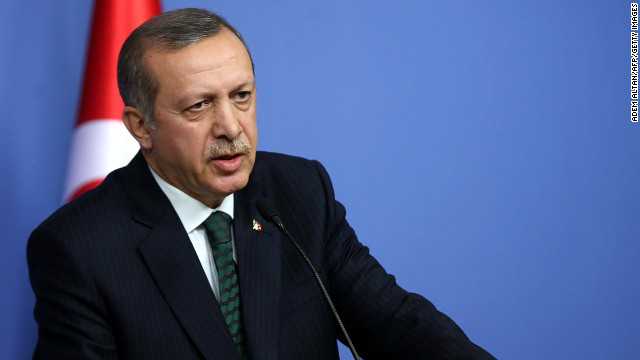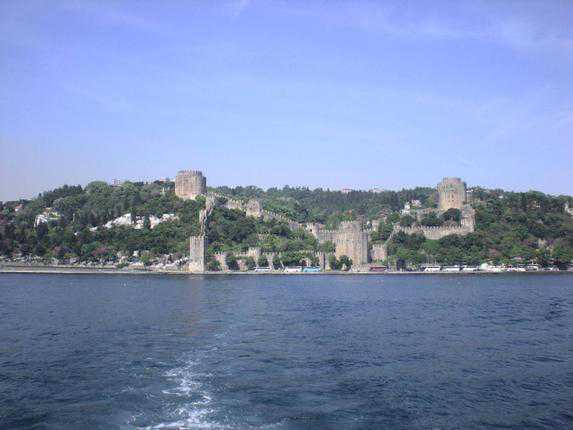Op-Ed
[An open letter to Newsweek]
Is Soner Çağaptay Walking the tightrope between morality and subservience?
by MEHMET YILMAZ*
As an enthusiastic Newsweek reader, I would like to express my disappointment over a recent article titled “Behind Turkey’s Witch Hunt,” written by Soner Çağaptay
I would like to state at the outset that this article has surely cast doubt on your credibility as a renowned journal, for anybody who is familiar with the societies and politics of Turkey and the United States would instantly notice that most of the author’s arguments are flawed and were written with less than benevolent intentions. Evidently, by penning this article, the author has tried to ingratiate himself with certain circles in Turkey that have been trying to dilute and obscure the ongoing Ergenekon case, in which a significant number of white-collar people have been arrested for their alleged involvement in various terrorist activities, aiming to ultimately overthrow the government by plotting a military coup.
The author’s main argument is that the current Justice and Development Party (AK Party) government is trying use the Ergenekon case as a means to curb freedoms and more importantly to edge out people who seem to be opposing the AK Party’s policies. The author indicates that there is a symbiotic relationship between the AK Party and the Gülen movement, a pacific spiritual social movement which the author wrongly calls a “tarikat” (Islamic order), and that the Turkish National Police Department is nothing but a tool for the realization of the AK Party’s goals. The author implies that: i) The National Police Department works under the command of the AK Party government; and ii) The Gülen movement supports the AK Party; so iii) The Gülen movement must also support — and since it is a powerful movement, it must control — the National Police Department. Doubtless, the syllogism here is way too simplistic, lacking credible evidence to substantiate it. Still, in an effort to undergird his arguments, the author uses some statistical data selectively and manipulates them to serve his purpose. Such efforts indeed run counter to his expected goal as one cannot help but think that this article is nothing but a manifestation of the author’s lack of moral and ethical scruples. For example, in regards to the number of people who are under surveillance, he wrote the following: “On April 26, Turkey’s justice minister said that police intelligence listens to the private conversations of 70,000 people; almost one in every 1,000 Turks lives under police scrutiny today. In the United States, that ratio is one in 137,000.” The author is wrong about the numbers as evidenced by the justice minister’s response at the Turkish Parliament to an interpellation vis-à-vis the number of wiretappings. In his response, the justice minister stated that he has no statistics regarding the number of wiretappings and instead sufficed to say that 12,888 recordings from the years 2006, 2007 and 2008 had been destroyed.
Although the abovementioned ratio, not the numbers, were articulated by Fethi Şimşek, president of the Telecommunications Directorate (TİB), there are two problems with the citation of Mr. Şimsek’s statement. First, the author used the information in a self-serving manner, disregarding the fact that Mr. Şimşek also said the number of wiretappings in Turkey is not beyond European standards. Second, not only in this quote but throughout the article, the author deliberately used the term “police” in the discussions of surveillance of people’s private communications, when he is expected to know as a “Turkey expert” that the National Police Department is not the only organization involved in surveillance activities in Turkey. For instance, in Turkey all interceptions of wire, oral and electronic communications follow a legal process, i.e., applications are processed by the TİB; accordingly, not only the National Police Department, but also the National Intelligence Organization (MİT) and the gendarmerie are granted permission to implement these interceptions. In addition, in order to listen to the private conversations of 70,000 people simultaneously, there would be a need for 70,000 people. Since the number of officers in the National Police Department is about 200,000 and the majority of them are not involved in intelligence activities, it is practically impossible for all wiretappings to be done by the police.
Moreover, in recent years there has been a significant improvement with regard to Turkish law enforcement agencies’ adherence to democratic policies and implementation, due perhaps, largely, to these agencies’ conspicuous efforts to adapt themselves to the globalizing world, as well as to the positive influence of the democratic reforms made for EU accession. Contrary to Çağaptay’s portrayal of the situation in Turkey, I feel confident in saying that the common perception among people in Turkey is that the National Police Department, especially, has been working meticulously to make sure that all wiretappings and other surveillance activities are done within the confines of the law. In fact, this kind of work in turn has borne fruit in the sense that the National Police Department was able to capture documents and tapes containing private information, conversations and video recordings that belong to nearly 2,500 prominent Turkish citizens. These data were illegally stored by an army general while he was working as the head of intelligence at the gendarmerie who aimed most probably to use those recordings for blackmailing purposes, or in other words, for his own “witch hunting.” In parallel, he was arrested based on his involvement in the Ergenekon group, allegedly a terrorist organization. But somehow, the author and the like choose to remain aloof to these facts and still try to obscure the Ergenekon case by saying that it is not possible to plot a coup with the “few” bombs that were found by the police, while the numbers indeed are flabbergasting.
On the other hand, the author mentions that the ratio with regard to the people under surveillance is one in 137,000 in the United States while it is one in 1,000 in Turkey. This, however, is another demonstration of fact distortion by the author, given that in Turkey almost all interceptions are done because of terrorism-related crimes, whereas by a simple Google search, a careful and well-intentioned person would realize that people involved in terrorism-related crimes are not included on the list of people under surveillance in the United States.
In fact there is an enormous body of literature, as well as serious debate, over the issue of unlawful wiretapping in the United States, which has reached alarming levels, especially after the Sept. 11 attacks in New York City. What is ironic, as much as stunning, is not only the distortion of the facts about the figures in the US, but also the author’s comparison of Turkey with the United States in the first place. For the notorious civil rights violations under the rubric of “pre-emptive” anti-terrorism measures by the quondam US administration led by former President George W. Bush left indelible marks on the US’s image as a benign hegemon or the leader of the free world, and his successor, President Barack Obama, the man of hope, and his security team’s efforts to restore that tarnished image seem only to be exacerbating the damage caused by his predecessor.
To give an example, despite some positive initial attempts with regard to upholding individual rights and freedoms, President Obama has lately started to recoil from that position as he has recently suggested the notion of “prolonged detention” on a perilous premise that prolonged detentions are necessary for some people who cannot be incarcerated for their past crimes because the evidence may be tainted. When the euphemisms are stripped away, what President Obama suggested is “indefinite detention without charges” or “preventive incarceration,” which is nothing but the continuation of the same old policies of the Bush administration. Thus, as the author has been living in the United States for a long time and following the sociopolitical developments of the country as an expert at a well-known think tank, his indifference to the omission of terrorist-related crimes from the above-mentioned list and his selective usage of the data seem to be more than carelessness on the part of the author.
All in all, while the author’s intention, by singling out the police from the group of organizations involved in the interception of private communications in Turkey, seems to serve his attempt to endear himself to the known circles via building a case by creating a link between the police and the Gülen movement — i.e., the former is controlled by the latter — you can rest assured that his unsubstantiated arguments have done nothing but marred the impartiality and credibility of your publication. Moreover, I have to admit that given the author’s perception of the Gülen movement, i.e., he claims not to share the sinister view of “most Turks” about this movement’s spiritual message, the abovementioned link that the author suggests between the police and the Gülen movement perplexes more than it clarifies the reader about the nature of that supposed link. While trying to manipulate the reader by portraying the movement as a pernicious one, mentioning that the court filed a case against Gülen and that Gülen left Turkey and settled in the US, he does not mention that Gülen was acquitted of the charges of creating an illegal organization for the purpose of overthrowing Turkey’s secular state and replacing it with one based on Shariah. This, too, stands as another example of the author’s selective use of information.
On a penultimate note, I would like to attract your attention to the author’s attempt at offering remedies, which is even more problematic, as he suggests that “there is a way out of this conundrum if the AK Party turns Ergenekon into a case that targets only criminals.” Clearly, the author presents nescience, or simply acts pretentiously, about the notion of the independence of the judiciary and advocates instead the kibitzing of the ruling party with the ongoing legal process.
Finally, as I urge you to triangulate the information presented in the articles of this author that you plan to publish in the future in your magazine, I hope that you will take this letter merely as constructive criticism.
*Mehmet Yılmaz is the assistant editor-in-chief of Zaman daily.
Source: www.todayszaman.com, May 27, 2009




